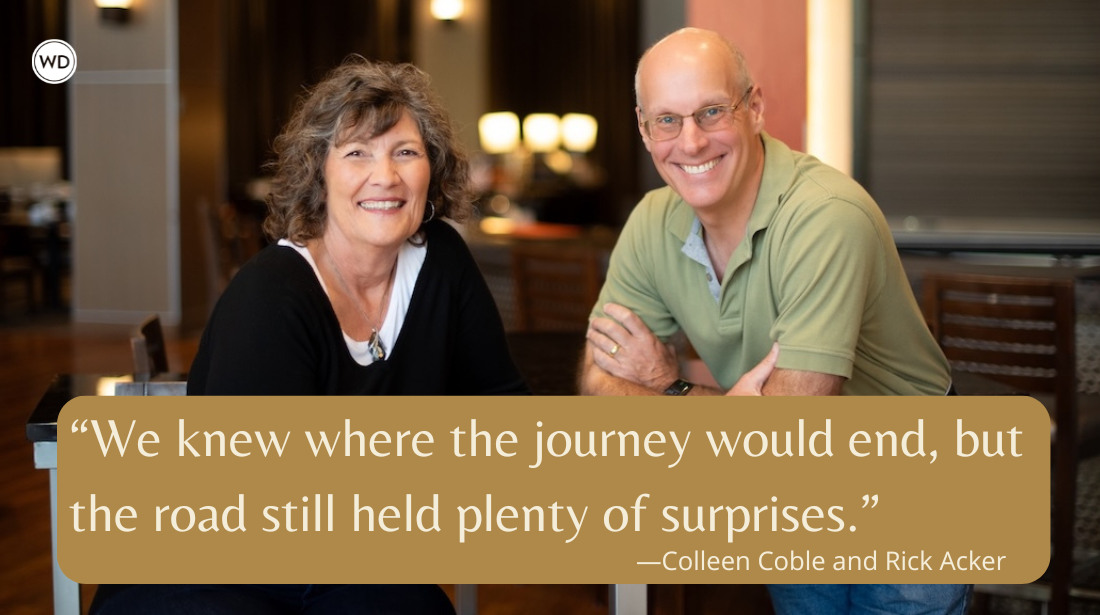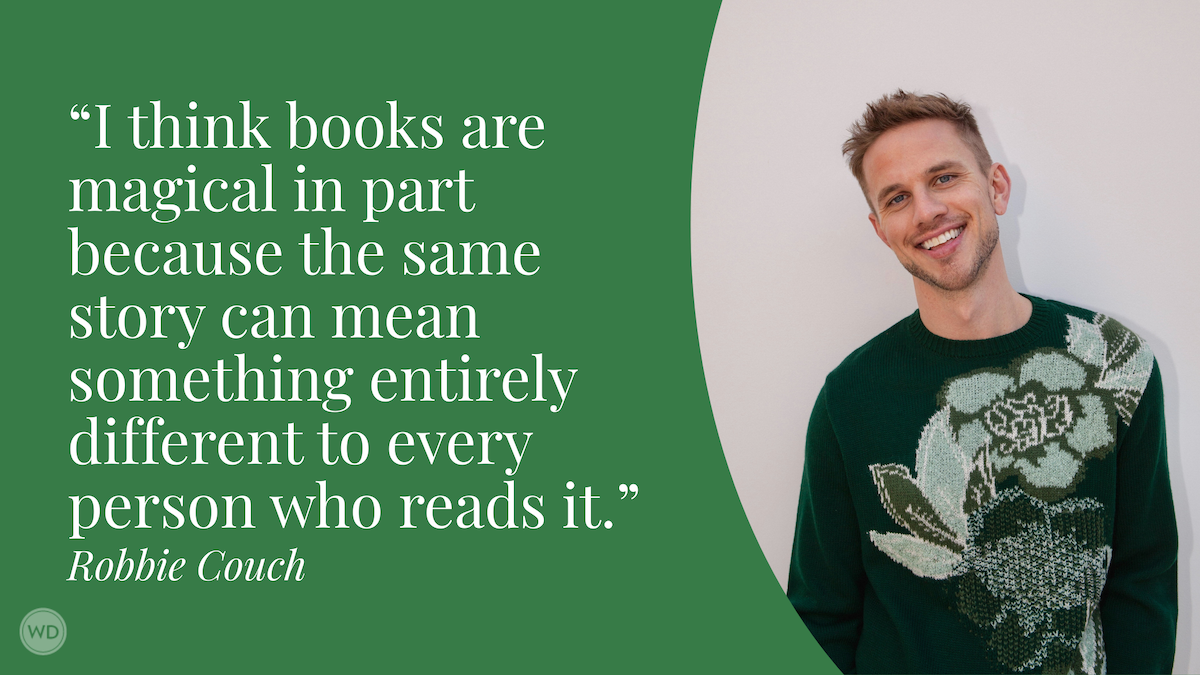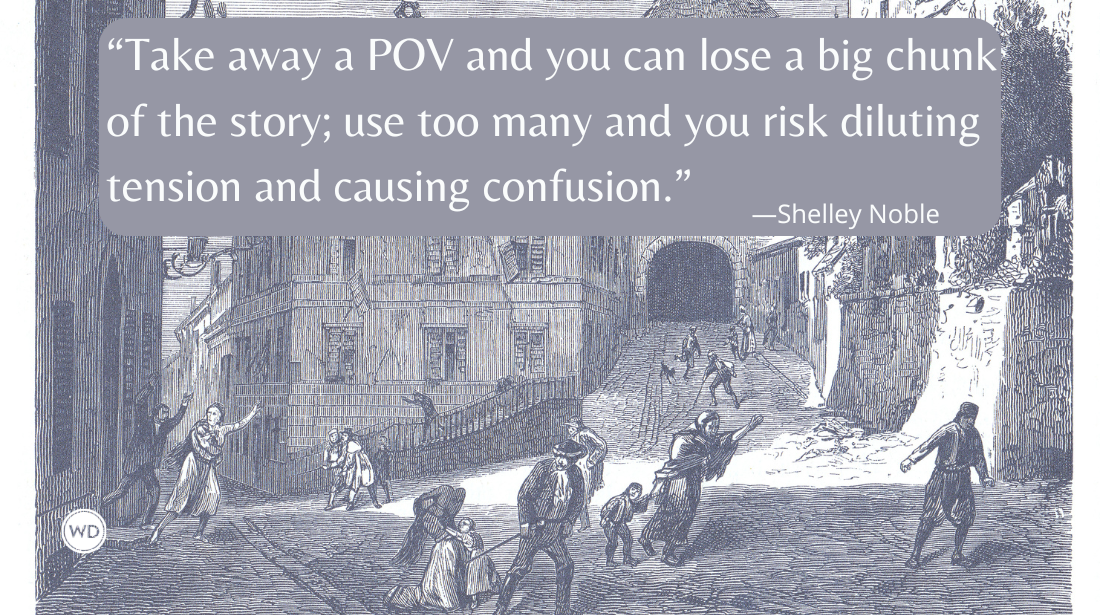Family Stories as Inspiration for Historical Fiction
When writing fiction, there’s always a fine line between reality and make-believe. Debut author Kirstin Beck explains how her family’s history became the seed for her novel Courage, My Love.
To most who knew her, my grandmother appeared to be a typical midcentury wife and mother. She raised four children in a California suburb, acting as the foundation in her large, busy family. As she aged, she cared for my grandfather through illness and lived her remaining decades as a widow. She often came to stay with my family during this period, both to help my parents and to alleviate the quiet of living alone.
To my teenage friends, my grandmother was “adorable.” Tiny and bustling, she was quick to laugh, opinionated, and, when called for, she wielded a fierce temper. She walked miles a day well into her eighties, hoofing it up the street to the grocery store in her pedal pushers and blouses, a kerchief fastened over her hair if it looked like rain. She’d be back to open the door when we arrived home from school, eager to hear about our classes and ready to defend us, unwaveringly, should we air any grievances.
Yet, there was more to my grandmother than my friends would have guessed. For one, she dreamed of becoming a writer. As my own interest in writing deepened, I became curious about the stories she tapped out, day after day, in her quiet house over the Canadian border. She had been a nurse in World War II, serving in the Canadian army, and we’d all accepted that in the unquestioning way children regard the adults in their lives. But, as I grew up, my curiosity did too. Where, exactly, had my grandma lived during the war? What was it like? Why had she left Canada, at a time when young women rarely left their rural upbringings?
And so, her stories emerged. She spoke of easy things first, like her trunk, which served as a coffee table in her den but had traveled to Europe with her fifty years earlier. When I asked about her wedding photos, she explained that nurses who married during the war often did so in their uniforms. I leaned in, studying the black and white picture of my grandparents, grinning on the steps of a cathedral in Belgium.
IndieBound | Bookshop | Amazon
[WD uses affiliate links.]
“My friends threw rice,” she said thoughtfully, “and then people came and swept it up for dinner. They were so hungry.”
In Normandy, she’d lived and worked in a tented field hospital. Bombs fell nearby, exploding on the front lines. Gunfire was constant. The mud, in her memory, was the stuff of legends. She laughed, explaining how she’d bathed out of her own steel helmet with a washcloth, attempting to clean that mud away.
“And the patients?” I asked, trying to imagine the soldiers she nursed in those fields. “What was your work like?”
Her lips pursed a bit at that question, and she shook her head. “Awful.”
My current novel-in-progress is about field nurses and female doctors in World War I, and I think of these conversations often. Though my book is set in a different war, my grandmother’s stories surface throughout. There’s her memory of soldiers singing in hospital trains, their voices incongruous with horrific conditions. Or, the patient who managed his pain by stitching a needlepoint, which hung over the bed I slept in at my grandparents’ house. I’ve channeled the great uncertainty of being immersed in a world at war, and the courage it took to work through it. My characters forge the same iron friendships my grandmother described. And also like her, they fall in love despite it all.
I’m so thankful, now, that I listened to my grandmother’s stories when she was still with us.
If you’re setting out to write fiction inspired by family history, the place to begin is with questions. Even though I always knew about my grandmother’s life, it wasn’t until I started to ask questions that my imagination took hold. Her stories led to my interest in women’s unsung roles in World War II, eventually resulting in my debut novel about women in the Italian resistance. I wish now that I had recorded interviews with her, and I would advise anyone with elderly relatives to do this. Listen closely, write things down, and if possible, capture their voice.
Sometimes, people tell me that they want to write a relative’s life story, yet it seems daunting to fictionalize someone they knew well. I had this experience myself during my first attempt at drafting a novel. I set out to write my grandmother’s story, starting with a detailed outline of her wartime experiences and didn’t get much further than that. Ultimately, I found constructing a young version of her to be both impossible and somewhat uncomfortable, so I departed from that strategy and embraced a more fictional approach.
Nonetheless, her story inspires almost all of my work. Her empathy and no-nonsense efficiency breathe life into the nurses and doctors I’m creating now. When I was writing my debut novel, Courage, My Love, I thought of the way my grandma had stepped out of the roles expected of women in that era, and I conjured her spirit and stubborn grit in crafting fictional Francesca and Lucia. My grandmother’s romance, which led to a wedding only six weeks later, inspires all the wartime romances in my books. I learned that it wasn’t necessary to write her story as it had happened; I could allow her experiences to inform my imagination, thereby enriching all of my work. Family legacy has proven to be a powerful well from which to draw.
Perhaps most importantly, in writing these novels I’ve developed a new admiration for my grandparents. Behind that midcentury couple raising children in the suburbs was a history most people never could have imagined. My adorable grandmother, with her swift smile and kind eyes, was unspeakably brave. And my gentle-hearted grandfather had once been the soldier who swept her off her feet. I’m so grateful that through writing I’ve not only gained a deeper understanding of my grandparents, but I’ve also found a way to honor them.
Kristin Beck first learned about World War II from her grandmother, who served as a Canadian army nurse, fell in love with an American soldier in Belgium, and married him shortly after VE Day. Kristin thus grew up hearing stories about the war and has been captivated by the often unsung roles of women in history ever since. A former teacher, she holds a bachelor of arts in English from the University of Washington and a master's in teaching from Western Washington University. Kristin lives in the Pacific Northwest with her husband and children. Courage, My Love is her first novel.









